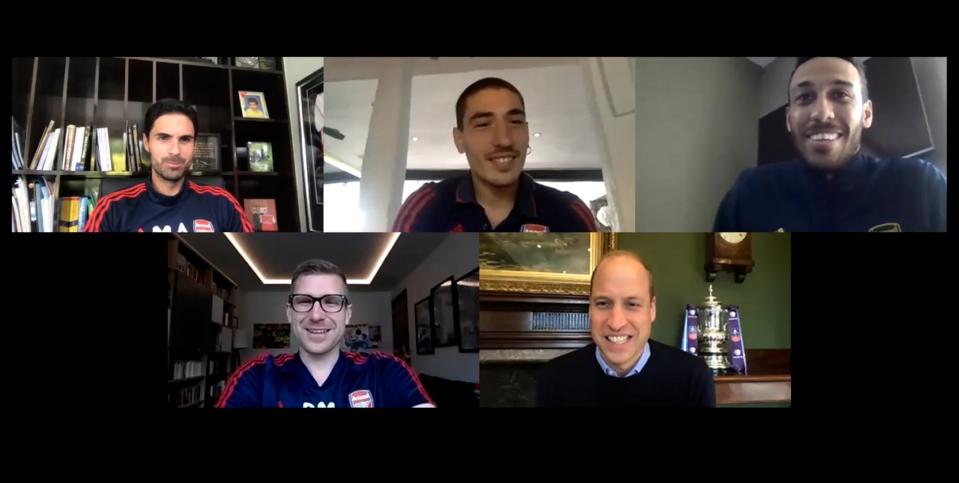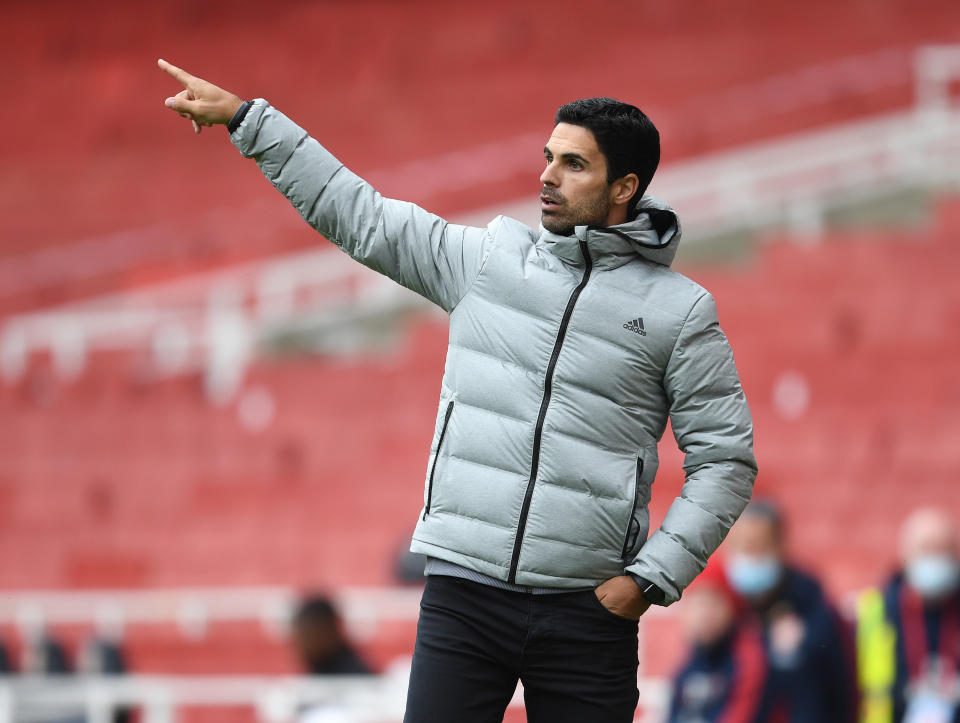FA Cup final to be renamed after Prince William's mental health charity
Prince William has spoken to Arsenal players about mental health and football as it’s revealed the FA Cup final will be renamed after his campaign this year.
The FA Cup final is provisionally rescheduled for 1 August, and will this year be called the Heads Up FA Cup, after the Duke of Cambridge’s mental health campaign.
William, 37, has been campaigning on opening up the conversation around mental health for several years, and spoke again about his fears there could be national repercussions in months to come after the coronavirus pandemic.
In a call with Arsenal’s head coach Mikel Arteta, Hector Bellerin, Pierre-Emerick Aubameyang, and academy manager Per Mertesacker, William said: “I’m really pleased that you guys are all coming back to football soon.
“And, as you can see behind me, I’ve got the FA Cup, it’s going to be named the Heads Up FA Cup – which is great news. So we’re going to really use the final as a moment to promote good, positive mental health for everyone.”

He added: “It’s quite timely bearing in mind what we’ve all been through with this pandemic.
“I think there’s going to be, sadly, a lot of repercussions from this in society, not just in football, in terms of people’s mental health. Hopefully the FA Cup can be a bit of a pivot that people can rally around.”
William, who is president of the FA and an Aston Villa fan, travelled around the country throughout the 2019/20 season visiting grassroots and premier league clubs to talk to players and fans about mental health for a documentary.

Read more: Prince William reveals he has been volunteering as a counsellor during coronavirus pandemic
The prince spoke to Arsenal team members as the side has won the cup a record 13 times. Head coach Arteta was diagnosed with COVID-19 on 12 March and the day after, all league matches were suspended.
Arteta said of players’ mental health during coronavirus: “You have to create a safe environment for them to be able to talk to you directly without feeling judged, or [worrying] whether that’s going to have consequences for them, whether they’re going to play or not, or my feelings towards them.
“This is what I’ve been trying to do over the last 12 weeks, by trying to talk individually so they can raise those feelings, their issues, and we can build the club culture that I want, which is based on respect.”
Arsenal captain Aubameyang said: “I think the most important thing is to be next to them, to try to speak a lot with them, to give them all the space they need for talking, because I think the best thing is to talk, and to discuss problems.”
Mertesacker added: “I was not comfortable speaking with certain individuals because I thought I needed to be strong, resistant and resilient, and deal with any kind of circumstances.
“Nowadays, there are more mechanisms than ever to start a conversation, and to give players tools to really cope with it.”
Read more: Prince William talks homeschooling: 'You worry how little you know when you can't do Maths'
The duke has been running Heads Up as a partnership between Heads Together and the FA throughout this football season. Heads Together is the mental health campaign he launched with his wife Kate and his brother Prince Harry, run through the Royal Foundation.
He’s raised issues about the mental health of frontline workers as well, warning over calling them heroes in case it impacts their ability to seek help and support.
And he revealed he has been a volunteer counsellor on their 24/7 crisis platform Shout.
Godric Smith, chairman of the Heads Up campaign, said: “We are extremely grateful to The FA and to Emirates for this unprecedented gesture of support. Dedicating the final of football’s most iconic domestic cup competition to Heads Up is a huge statement about the importance of mental health and their commitment to it.
“Given the many different impacts of the COVID-19 pandemic, it is more important than ever that we talk about our mental health and help support one another, and The Heads Up FA Cup Final will hopefully generate many more of those conversations amongst fans and the football community.”



